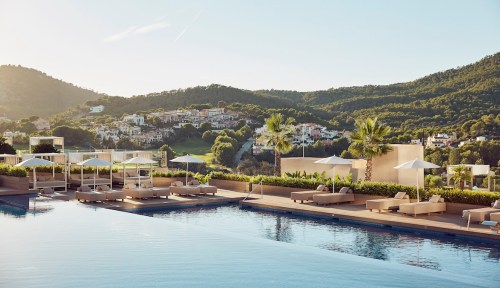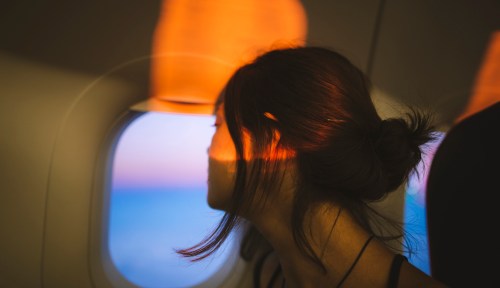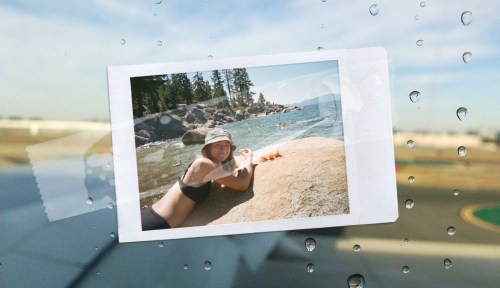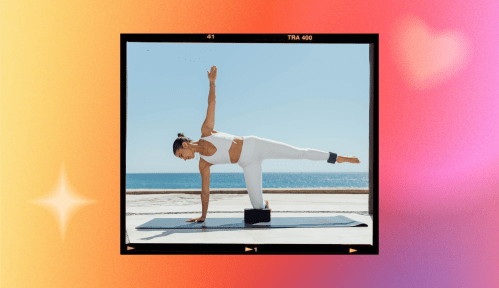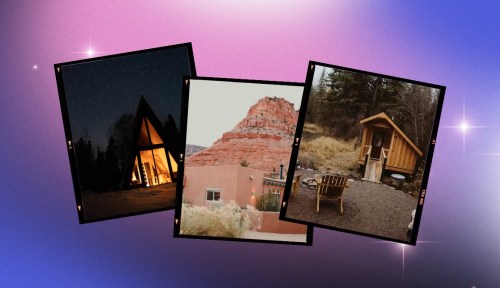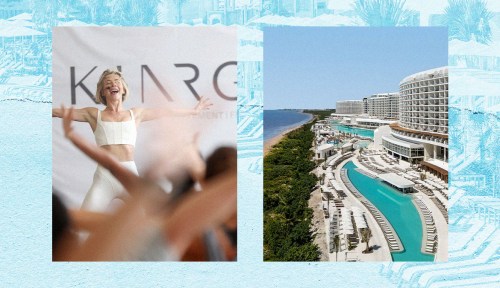Our editors independently select these products. Making a purchase through our links may earn Well+Good a commission
I have visited the world’s 195 countries and 10 territories. Through these travels, I learned two key lessons: First, most people are good. My journey was made possible by the kindness of strangers—some who opened their homes to me and others who donated money to help me reach the finish line. I always assume the best of people because that is what I received nine times out of 10 in every corner of the world. The few bad experiences will never outweigh the good. The second lesson I learned is that we are more similar than we are different.
We travelers have a duty to tell the stories of the places we visit with dignity and respect, to share our adventures without patronizing places or people. One person’s experience in a country can cause others to follow in their footsteps or swear to never step foot in a destination. So, if I am going to tell a single story, I seek to find the positive. I travel with a lens of curiosity and a desire to understand what everyday life is like. I am looking to learn rather than confirm biases. And with my new memoir, The Catch Me If You Can, in which I outline experiences in a number of the countries I’ve visited, that’s exactly what I aim to do.
When traveling, and really in life, you will find what you are looking for. If you look for joy, you will find joy. If you look for beauty, you will find beauty. Alternatively, if you seek misery, you will find that. Life gives you what you seek. What are you seeking?
For far too long, we have seen the world only through one lens, and I am here to offer an alternative. Most of the people who have visited every country in the world are white men, and there is no question that our experiences are very different. Below, find my experience in Nigeria, the 108th of 195 counties I’ve visited.
***
The Federal Republic of Nigeria, home to more than 211 million people, is Africa’s most populated country and the world’s seventh most populated. Anywhere in the world you meet an African person, they are likely Nigerian.
Nigeria has given us Fela Kuti, the political activist, musician, and architect of Afrobeat, whose song “Zombie” can be heard on my record player regularly; the legendary writer Chinua Achebe; Ngozi Okonjo-Iweala, the first woman to helm the World Trade Organization; one my favorite authors, Chimamanda Ngozi Adichie; and globally popular musicians, including Wizkid and Burna Boy. Nigeria has given us Nollywood, one of the world’s largest film industries, as well as Hollywood stars Chiwetel Ejiofor and Cynthia Erivo. With all that Nigerians have given the world, it is no wonder they are some of the proudest people I have ever met.
If Africa were a country—reminder, it is not—Lagos would be its heartbeat. The vibrant West African metropolis is packed with yellow buses, Keke Marwas (motorized rickshaws), and Okadas (motorcycle taxis) buzzing about. It is also home to a burgeoning tech and creative scene. The massive city is divided into the mainland and several islands, including Victoria Island and Ikoyi.
Lagos, Nigeria is a massive city, divided into the mainland and several islands, including Victoria Island and Ikoyi.
My first trip to Lagos was a mix of traffic jams, drinks, dinners with new friends and old, and a visit to the Kalakuta Museum, where I learned a small history of the empire that Fela Kuti built. I also took a trip to Tarkwa Bay, a small island just off Lagos, where we made our own picnic as the waters of the Atlantic lapped the shores. At an epic J. Cole concert, a week after the release of his KOD album, I danced with the audience. I browsed Nigerian art at the Nike Centre, completely charmed by its namesake owner, Nike Davies-Okundaye. I negotiated for a new bag in Lekki Market and ate delicious bites at Nok. Lagos was a whirlwind, and it had me in its grasp.
Lagos is also where I learned a valuable lesson in kindness, positive energy, and the danger of assumptions. After grabbing a juice with my de facto tour guide, Toju, I realized a mile from the café that I didn’t have my phone. We rushed back and searched frantically while trying to call my phone. The phone rang and rang. Finally, someone picked up but didn’t speak. Using Find My iPhone, we hopped in the car and followed the GPS signal in what felt like a criminal chase. We found ourselves in the middle of a neighborhood with no one in sight. Feeling defeated, we went back to the café to look at security video footage. You could see me leave the store with my phone, and then unknowingly drop it in the parking lot as I climbed into the car.
The nightmare escalated. Whomever had my phone had turned it off, eliminating any possibility of tracking it. An hour and a half later, I insisted that we look up the phone again, and it had been turned back on—someone answered. Thirty minutes later, we met the man with my phone. It was clear he had not showered or eaten in days. He told us he had seen the phone on the ground and picked it up on his way to church. Relieved, we asked him if he was hungry and took him inside a small restaurant to buy him two meals—one to eat immediately and one to take with him. I gave him all of the naira (Nigerian currency) I had and thanked him for returning my phone. Toju gave him his phone number, telling him to call every day until he found a job. The man never did call, but I believe karma is protecting this gentle soul.
I firmly believe in positive energy. The universe brought my phone back to me. Same with a stolen wallet in Los Angeles, a lost wallet in Detroit, lost credit cards in Johannesburg, and my passports and credit cards in the Philippines. Even in places with high crime rates, places people told me to avoid, I have recovered what I’ve lost—and that’s been crucial for me to remember throughout my travels: Most people are good.
Edited from an excerpt of The Catch Me While You Can, published June 14, 2022.
Oh hi! You look like someone who loves free workouts, discounts for cutting-edge wellness brands, and exclusive Well+Good content. Sign up for Well+, our online community of wellness insiders, and unlock your rewards instantly.
Sign Up for Our Daily Newsletter
Get all the latest in wellness, trends, food, fitness, beauty, and more delivered right to your inbox.
Got it, you've been added to our email list.

